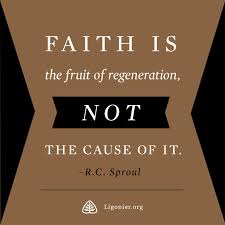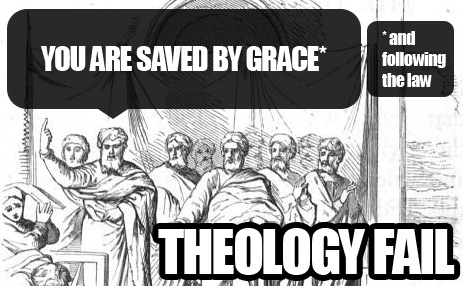 Your vote probably will not matter very much. The people you vote for probably won’t win. In fact, if the people you vote for do win, they will probably turn out to be just as corrupt as the people you voted out. And don’t think for a second that you are going to effect change in your city, county, state, or country by casting a vote on election day. Change doesn’t happen that way. True and lasting changes happens only through lives submitted to Jesus Christ, which is true of very few elected officials, and even if we did elect Christian politicians, it would not be right for them to impose Christian morality on the rest of society like some sort of Christianized Sharia Law.
Your vote probably will not matter very much. The people you vote for probably won’t win. In fact, if the people you vote for do win, they will probably turn out to be just as corrupt as the people you voted out. And don’t think for a second that you are going to effect change in your city, county, state, or country by casting a vote on election day. Change doesn’t happen that way. True and lasting changes happens only through lives submitted to Jesus Christ, which is true of very few elected officials, and even if we did elect Christian politicians, it would not be right for them to impose Christian morality on the rest of society like some sort of Christianized Sharia Law.
Nevertheless, you need to go vote.
Over the past couple years I have read numerous books and articles from various Christian pastors, teachers, and authors who argued that Christians should not vote in elections. They used many of the arguments I used in the opening paragraph above.
And you know what? I do not disagree.
But I still vote. And so should you.
Why?
Because Christians are supposed to be the conscience of culture. We are to be the voice in the wilderness that calls our government to account. We are to raise the banner of peace and love when everybody around us is calling for war, bloodshed, and violence. We are to challenge the political abuse of power, the favoritism shown to the elite, and the partiality shows to the rich. We are to give voice to the weak and powerless, defend the defenseless, and raise awareness to the plight of the poor. We are to stand up for what is right when everybody else is heading toward wrong.
Granted, voting is not going to do any of this. Not really. But you should still go vote.
Why?
Because Christians and churches that do not vote have no right to then turn around and call to account those people who come into power.
In the 2012 Presidential elections, 4 million evangelical Christians did not vote who had voted in the 2008 elections. In 2012, President Obama won the popular vote by just over 3 million votes. I am not saying that all those 4 million evangelical Christians would have voted for Romney. They may not have. (In 2012, 21% of evangelical Christians voted for Obama.)
What I am saying, however, is that if any of those 4 million evangelical Christians who did not vote are unhappy with where our country is today, they have no right to criticize anything our government has done to get us here.
One prominent mid-western pastor encourages the people in his megachurch to forget about voting. He says it’s a form of idolatry. I know this because I listen to his podcast, which probably has tens of thousands of listeners on a weekly basis (maybe more). Yet I occasionally hear him also preach against many of the things our government is involved in, such as wars in the Middle East, the abuse and neglect of the poor in our cities, and the escalating violence of our police force.
While I value and benefit from much that this pastor says, I cannot take him seriously when he starts to call our elected officials to account for their decisions and the directions in which they are taking our country, for in all honesty, this pastor is one reason those officials were elected! He didn’t vote, and he invited everyone who listens to him to refrain from voting as well. If he doesn’t like what these officials are doing, he should have taken advantage of his right to keep them from gaining the power of that office by getting out and voting.

If a Christian did not vote in the last few elections, they can say nothing negative about the $17 Trillion in national debt we have laid upon the shoulders of our children, with the new war in Iraq, with how the numbers of poor people in our country have drastically increased over the past several years, with how Wall Street Bankers have been bailed out while the middle class get pummeled, with how the United States has handled Russia in their aggression with Ukraine, with what decisions the Supreme Court is making regarding gay marriage, with the legalization of marijuana in various states, with the treatment of illegal immigrants in our country, with how the government is handling (or mishandling) our taxes, with how your healthcare premiums are sky rocketing due to Obamacare, with how our cities and states ignore the plight of the homeless, with the rise in frequency of late-term abortions (or any abortion for that matter), or any of the other political and social issues that matter to you.
I am not telling you what your perspective should be on any of these issues, nor am I saying that if Romney had been voted in, much of this would be different. It might not be much different at all.
 All I am saying is that if you did raise your voice by voting, you have no basis on which to raise your voice and criticize the government for the decisions it makes and directions it goes. Voting is not a replacement for being the cultural conscience, but it is the first step in doing so. If you want to call our leaders to account for their actions and decisions, then the first step in having the right to do so is to get out and vote.
All I am saying is that if you did raise your voice by voting, you have no basis on which to raise your voice and criticize the government for the decisions it makes and directions it goes. Voting is not a replacement for being the cultural conscience, but it is the first step in doing so. If you want to call our leaders to account for their actions and decisions, then the first step in having the right to do so is to get out and vote.
Christians must raise our voices for the causes we believe in, and one way (but not the only way!) we can do this in the United States is by going out to vote.
Whenever I hear Christians (or anybody for that matter) complain about the direction of our government, the first question I ask them is, “Did you vote in the last election?” If they say “No,” then I tell them I don’t want to hear their complaints, for they are part of the problem.
If you don’t vote in elections, then don’t complain when elected officials behave badly.
The question is not “To vote or not to vote.” The only real question is “For whom should I vote?”







 I would argue further that sin is the greatest proof for the existence of human true will (or free will, if you prefer that term). Why?
I would argue further that sin is the greatest proof for the existence of human true will (or free will, if you prefer that term). Why? Here then is where we arrive at the point: Just as God calls people to respond to His Word with obedience and righteousness through the exercise of their choices (non-meritorious though they might be) and fully expects them to be able to do so, in the same way, God calls people to believe in Jesus for eternal life, and fully expects them to be able to do so (cf. John 3:16; 5:24; 6:47).
Here then is where we arrive at the point: Just as God calls people to respond to His Word with obedience and righteousness through the exercise of their choices (non-meritorious though they might be) and fully expects them to be able to do so, in the same way, God calls people to believe in Jesus for eternal life, and fully expects them to be able to do so (cf. John 3:16; 5:24; 6:47).
 Previously we looked at what
Previously we looked at what 


 They argue that wherever this word is used in 1 John, it produces various results. Along with faith, they say that being born of God produces righteousness (2:29), the ability to stop sinning (3:9), and love for God and others (4:7). In every one of these cases, the verb for “born” is in the perfect tense, matching almost perfectly the tense usage in 1 John 5:1. And since practicing righteousness, avoiding sin, and loving God and others are all results of being born again, rather than conditions to it, it seems that faith also must be a result of being born again, rather than a condition of it.
They argue that wherever this word is used in 1 John, it produces various results. Along with faith, they say that being born of God produces righteousness (2:29), the ability to stop sinning (3:9), and love for God and others (4:7). In every one of these cases, the verb for “born” is in the perfect tense, matching almost perfectly the tense usage in 1 John 5:1. And since practicing righteousness, avoiding sin, and loving God and others are all results of being born again, rather than conditions to it, it seems that faith also must be a result of being born again, rather than a condition of it.



 The first thing to note about 1 John 5:19 is that the words “control” or “sway” are not found in the Greek at all. These words are added by the translators in an attempt to make sense of what John writes. The addition of these words is due in large part to a second translation issue in this verse.
The first thing to note about 1 John 5:19 is that the words “control” or “sway” are not found in the Greek at all. These words are added by the translators in an attempt to make sense of what John writes. The addition of these words is due in large part to a second translation issue in this verse. Usually the translator will try to add words that fit best with the overall context of the passage and book, but more often than not, the translator will add words that also fits with their own preconceived theology. This is why the NIV,
Usually the translator will try to add words that fit best with the overall context of the passage and book, but more often than not, the translator will add words that also fits with their own preconceived theology. This is why the NIV, 



 I know for a fact that I was reading a lot of books at the time I was writing those posts in question which led me to the beliefs and ideas I wrote about on my blog. Maybe this other author was reading the same books and coming up with the same ideas. That’s possible.
I know for a fact that I was reading a lot of books at the time I was writing those posts in question which led me to the beliefs and ideas I wrote about on my blog. Maybe this other author was reading the same books and coming up with the same ideas. That’s possible.

 Titus 1:15 is sometimes referenced as further proof for the doctrine of Total Depravity and its twin, total inability. The text says this:
Titus 1:15 is sometimes referenced as further proof for the doctrine of Total Depravity and its twin, total inability. The text says this:
 Yet Paul quotes it, and then “approves” of it by saying “This testimony is true” (Titus 1:13), not because he thinks it is right, but because the person who said it is a Cretan himself, and Paul wants to use this false teacher’s own words against him to show how foolish this teaching really was.
Yet Paul quotes it, and then “approves” of it by saying “This testimony is true” (Titus 1:13), not because he thinks it is right, but because the person who said it is a Cretan himself, and Paul wants to use this false teacher’s own words against him to show how foolish this teaching really was.